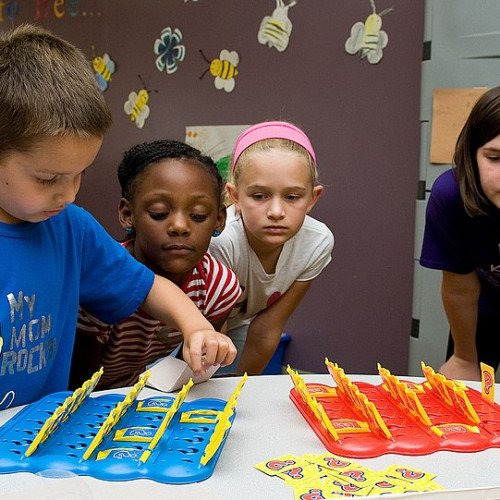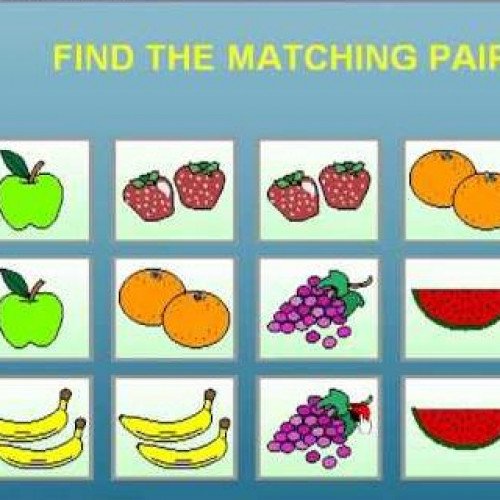GUESS WHO VS MATCHING GAME

GUESS WHO
Guess Who? is a two-player character guessing game created by Ora and Theo Coster, also known as Theora Design, that was first manufactured by Milton Bradley in 1979 and is now owned by Hasbro. It was first brought to the UK by Jack Barr Sr. in 1982. The classic edition is currently being produced by Winning Moves Games USA. Each player starts the game with a board that includes cartoon images of 24 people and their first names with all the images standing up. Each player selects a card of their choice from a separate pile of cards containing the same 24 images. The objective of the game is to be the first to determine which card one's opponent has selected. Players alternate asking various yes or no questions to eliminate candidates, such as: "Does your person wear a hat?" "Does your person wear glasses?" "Is your person a man?" The player will then eliminate candidates (based on the opponent's response) by flipping those images down until only one is left. Well-crafted questions allow players to eliminate one or more possible cards. Special editions which have different faces have been released, including Star Wars, Marvel Comics and Disney. There are smaller, "travel" editions which have only 20 different faces. In 2008 and 2010, extra and mix and match games were released. A computer game based on the series was released in 1999 by Hasbro Interactive. In the United States, advertisements for the board game often showed the characters on the cards coming to life, and making witty comments to each other. This caused later editions of such ads to carry the spoken disclaimer line "game cards do not actually talk" in order to meet Federal Trade Commission advertising guidelines requiring full disclosure of toy features unable to be replicated with the actual product.
Statistics for this Xoptio

MATCHING GAME
Matching games are games that require players to match similar elements. Participants need to find a match for a word, picture, or card. For example, students place 30 word cards; composed of 15 pairs, face down in random order. Each person turns over two cards at a time, with the goal of turning over a matching pair, by using their memory. Most matching games are objective, with correct answers in the rules for what counts as a match, pair, etc. Some however, like Dixit or Apples to Apples, are about subjective matches picked by one or more judge players. Here the correlation between a match holds value only as other players decide it, but rules dictate who will make those decisions and when.